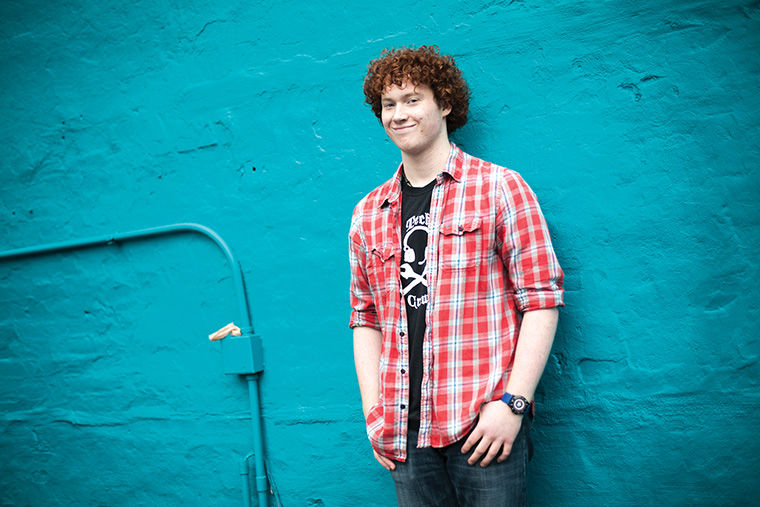Featured Athlete: Connor McCluskey
Featured Athlete: Connor McCluskey
October 20, 2014
Connor McCluskey, a sophomore audio arts & acoustics major, is captain of the college’s Quidditch team. Quidditch, an invented sport featured in J.K. Rowling’s “Harry Potter” series, has begun to pop up in chapters on college campuses around the country, rallying athletes and fans alike—broomsticks, Golden Snitch and all.
The Chronicle spoke with McCluskey about how he came into his “Harry Potter” fandom, started a new sport on a college campus, united the Muggles Association of Columbia and the Renegades and adapted wizarding athletics to the real world.
THE CHRONICLE: Were you a big fan of the “Harry Potter” series before becoming involved with Quidditch?
CONNOR MCCLUSKEY: I was very interested in “Harry Potter;” it’s been a big part of my life. I read the books as a kid and grew up watching the movies. So growing up, that’s where the interest in playing Quidditch developed. I think I started reading the books in 2002, and I finished the series when the last one was released.
What was your involvement in organizing Columbia’s Quidditch team?
I became a member of the Muggles Association of Columbia last year. I kept attending the meetings and events, and I’d been asking for [the team to be formed] for a while, and they gave me the position of Quidditch captain. It became my job to research the game and learn how it was played. I’ve been working alongside the Muggles Association and the Renegades to get the team opened. Naturally, people from the MAC [and] the Harry Potter Club would be interested in participating. Of course, it is a sport, so the Renegades play a big part, too. My job has kind of been to collaborate with both.
How is Quidditch played?
The main idea of game play is to score as many points as possible before the Snitch is caught. The game is played with five balls. Fans of the series will remember the Snitch is a flying ball that sprints around the field. What we have is a cross-country runner with a sock tucked into the back of their shorts. Our seekers are the people chasing the Snitch, trying to find it and catch it by pulling the sock from the runner’s shorts. The main ball is called the Quaffle—the center ball—and chasers use it to score points by throwing it through a hoop that is protected by keepers. There are three Bludgers—deflated dodge balls that are thrown to knock people out and prevent them from scoring. Once the snitch is caught, the game is over and whichever team has the most points wins.
When is Columbia’s Quidditch team going to get off the ground?
Because we’re a first–year team and we’re still organizing, we’re working on theoretically having games scheduled by early next semester. There are other schools in the area with teams. Loyola [University Chicago] has one, I believe Northwestern [University] has one and I also think University of Chicago has one. There’s a big base around just the Chicago area alone, so we’ll be playing these sorts of teams.
Do you think the sport will have mainstream appeal?
So far, Quidditch has been really exciting for people. We’re really excited to have it around, and I think it’s a great chance for people to play a sport that is completely unconventional, which I think is really cool. It’s a real sport that requires skill and a team effort to play. A lot of people seem interested in playing, whether they are “Harry Potter” fans or not.








